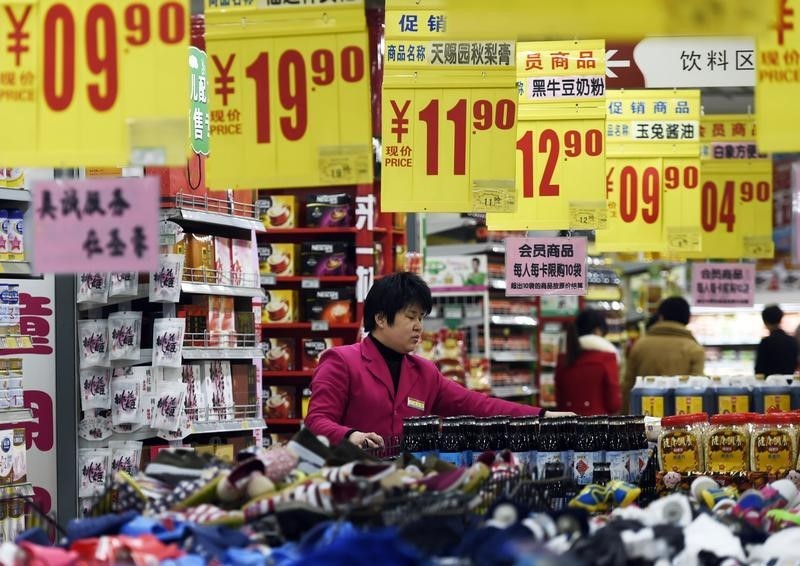UBS cuts Brent crude oil forecasts
Investing.com -- China government’s reduced inflation target of 2% for 2025 may be difficult to achieve, Bank of America (BofA) economists said Monday.
The February’s Consumer Price Index (CPI) inflation in China unexpectedly fell into negative territory at -0.7% year-over-year (yoy), a notable drop from the 0.5% seen in January and below both market expectations of -0.4% and Bank of America’s forecast of -0.5%.
The decline was attributed to a post-Lunar New Year (LNY) decrease in food and service prices. Without the LNY effect, the National Bureau of Statistics (NBS) indicated February’s CPI would have shown a marginal increase of 0.1% yoy. Core CPI, which excludes food and energy costs, slid to -0.1% yoy.
The Producer Price Index (PPI) deflation stayed constant at -2.2% yoy, slightly missing consensus and Bank of America’s predictions. Lower coal prices were identified as a contributing factor to the PPI’s performance.
When examining the combined data for January and February, which adjusts for LNY distortions, it’s clear that disinflationary pressures have persisted, with headline CPI inflation at -0.1% yoy compared to 0.1% in December.
“Out of the major components, food prices saw the biggest decline, while household goods & services and transportation & communication also saw price deflation,” BofA economists Xiaoqing Pi and Helen Qiao highlighted.
Within food prices, pork price inflation has eased, while vegetable prices dropped sharply after LNY amid improved supply. Meanwhile, auto promotion in February also weighed on overall price inflation, according to the NBS.
The PPI readings seemed less influenced by the holiday period, with producer goods prices remaining in contraction at -2.5% yoy and consumer goods deflation steady at -1.2% yoy.
Weak construction demand impacted metal and mineral prices, while an ample coal supply led to a significant drop in coal prices. In addition, oil-related sectors experienced deflation.
According to BofA, the underlying consumer and industrial momentum in China appears weak.
“While the government set a lower inflation target at the National People’s Congress (NPC) (2% in 2025, vs. 3% previously), we believe it is challenging to achieve the goal,” the economists said.
“In fact, the muted core inflation since last year points to weak consumer demand and calls for stronger policy stimulus,” they added.
Policymakers at the NPC have already introduced a policy package and expressed a readiness to increase support in the face of external uncertainties, including tariff shocks. The bank anticipates that efforts will be made to reflate the economy and counteract these challenges.
